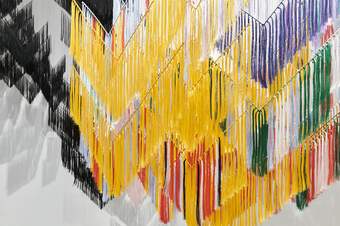Tate Papers 37: Mother Lines
We are seeking contributions for a special issue exploring transgenerational connections and ancestral knowledge in art. Submissions may explore themes of matrilineage, rematriation and interconnected transnational histories. Reflecting the museum’s wider programme, the issue will focus on artists who are centring modes of embodied and ancestral knowledge primarily passed on through women. Artists often turn to these connections as a way of resisting cultural, spiritual and ecological erasure and to restore relationships with our environment or histories.
Rematriation starts where repatriation does not reach. It addresses the failure to bring history out of gendered perspectives and it acknowledges women’s history and value, also paving the way for non-binary and queer stories ... Because of colonialism and the assimilation of Indigenous peoples into dominant cultures, many things have been lost and need to be relearned and strengthened. Without direct connection to belongings, such as the ládjogahpir, we are without history, and every nation has the right to their own history. Re-remembering processes is crucial for our cultures to survive and go on.1
Outi Pieski
This tent is like a breathing library whereby, I write and co-write and collect stories of women, and people in their struggles, against patriarchal narratives and violent acts, whether in real life or in history, such as Islamic history, told from a feminist perspective, or a history from the Arab world and around it. The narratives are proof of strength and resistance.2
Mounira Al Solh
Many of the themes ... my work continues to explore began with my grandmother. Through her, I began to understand the consequences of the establishment of the Soviet Union: the disappearance of local values, sensitivities, and knowledge ... The Central Asian female world is more connected to local forms of knowledge that have survived religious and political transformations in the region; a space where beliefs, rituals, and traditions about being deeply bound to and dependent on our environment, on animal and vegetative worlds, are guarded by women.3
Saodat Ismailova
This special issue is supported by Hyundai Tate Research Centre: Transnational. Please send submissions to tatepapers@tate.org.uk, including your full name and affiliation, as well as those of any co-authors or contributors.
Deadline for submissions: 12 May 2025
For submission guidelines, see How to Submit. For information on editorial policies and processes, such as peer review, see About Tate Papers.
Banner image: Outi Pieski, Guržot ja guovssat / Spell on you! (detail, installation view, Tate Modern, 2025)

